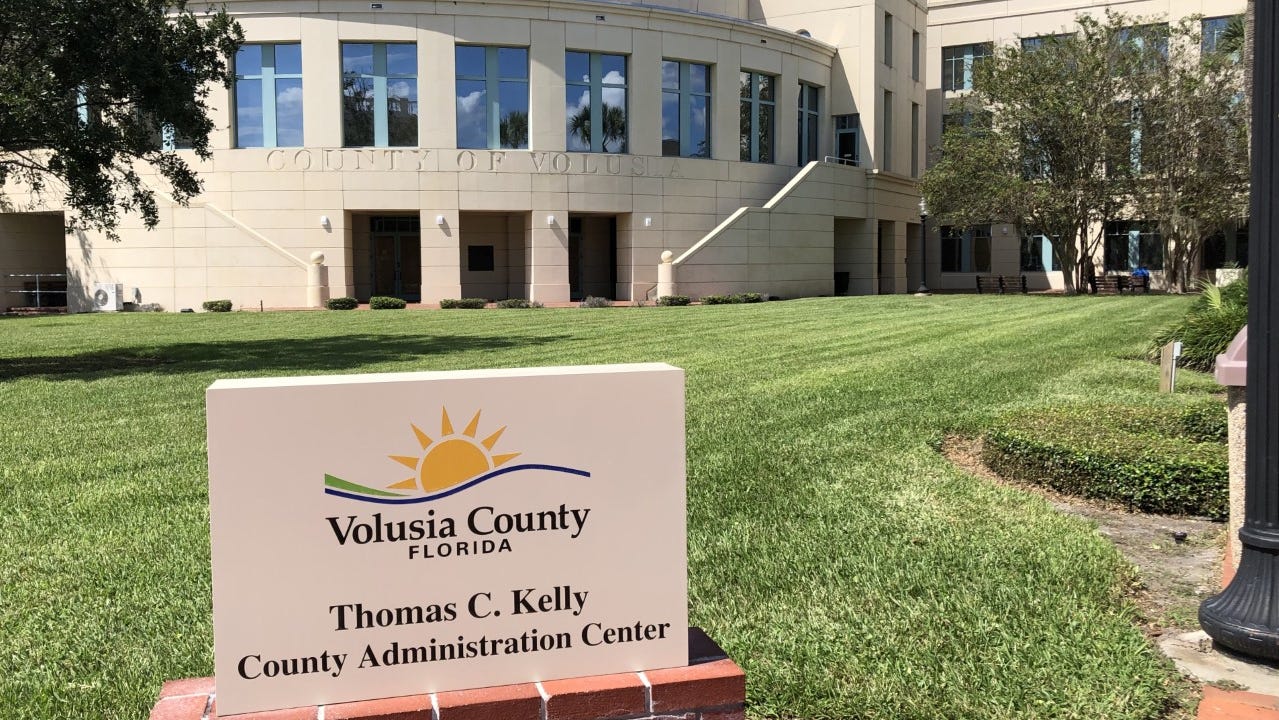
Unincorporated Volusia County will soon offer more flexibility for affordable housing developers ― but not nearly as much as some residents and community leaders want.
The county’s affordable housing plan, which a previous County Council adopted in July of 2022, recommends updating the county’s Comprehensive Plan. The county has been working on implementing the plan and brought forward recommended changes to the Council.
It recently voted 5-1 to approve a scaled-back version of the changes, and the discussion revealed a profound split in how some council members view affordable housing policies.
District 3 Councilman Danny Robins voted for the changes but said he wanted to see the council change the rules to allow the same flexibility for other developers.
Dempsey a ‘hard no’
District 1 Councilman Don Dempsey still opposed the revised slate of recommendations and was the only member to vote against them when the item returned this month. District 2 Councilman Matt Reinhart was not present because of a family emergency.
Dempsey raised concerns about incentivizing more development when the county is seeing complaints about traffic and flooding. He also said he doesn’t want the government to interfere in the market.
Dempsey, a lawyer, is “heavily involved in the real estate market,” he said. A financial disclosure form showed that he was worth over $4.5 million as of June 1, 2023, with a large chunk coming from real estate. Among his assets listed were three rental properties in DeLand that bring in $3,750 a month.
He said he’s seen the real estate market fluctuate.
“We need to just let the market play itself out and quit letting government pretend that we’re the cure-all for all the issues, so I’m a hard no on this,” Dempsey said. “I think whenever we have an opportunity to stay out of people’s lives in a free economy, we need to.”
‘Pretty appalling’
Several people from the community spoke in support of the council adopting the original recommendations and some shared statistics on the gravity of the affordable housing problem in Volusia County.
Attorney Nika Hosseini also helped develop the county’s affordable housing plan. She urged the council to adopt the original recommendations.
“The nurse that helps you at the hospital, where is she or he supposed to live when they’re just getting started? To say that this is about development or that the market will simply handle itself is, frankly, pretty appalling in my opinion,” she said. “We are supposed to be a community of individuals that help each other.”
Lori Gillooly, the CEO of Habitat for Humanity of Greater Volusia County, said the need for affordable housing grows daily in Volusia County, and the market can’t fix the problem.
“The people who are building moderate homes, luxury homes, there’s a profit margin in that. There’s a very, very small opportunity for any profit in affordable housing,” Gillooly said. “We’re going to do what we do because it’s who we are. But we all need help. You need as many people building affordable housing in this community as you can encourage, so they need those incentives.”
Gillooly said the people who seek help through Habitat for Humanity work in health care, tourism, trucking, manufacturing and other fields.
“They work essential jobs in this community, and they are struggling to make things work for themselves and for their children,” she said.
Any progress is good progress
Attorney Jessica Gow helped develop the county’s affordable housing plan and advocated for the council to adopt the original proposed Comprehensive Plan changes. But she said via email to the News-Journal that “any positive progress should be celebrated.”
“While I’m hopeful that we will continue to make strides in addressing workforce and affordable housing needs in our community, the vote by Council allows for flexibility in permitting that will hopefully have a positive result on housing in our community,” she said.
The county’s Comprehensive Plan, required by state law, is a guiding document for development in the county. Municipalities have their own comprehensive plans.
Among other things, the changes approved by the council allow the Development Review Committee to modify lot sizes, setbacks, height requirements and other development standards by up to 10 percent for affordable housing projects. That is a reduction from the up to 40 percent originally recommended.
It’s not clear how much of an impact the approved incentives will make. Speaking about expedited permitting requests, Deputy County Manager Suzanne Konchan said that much of the affordable housing development is happening in the cities in urban areas.
“So I know it’s getting a lot of discussion from a philosophical level, but the number of projects seeking that are, well, practically nonexistent,” she said.
‘Who has $900 rent?’
The original changes to the Comprehensive Plan came to the council in 2023. But some council members pushed back on it, and the council voted to have staff revise it and bring it back.
District 5 Councilman David Santiago said that rules from government agencies raise the cost of development, and he would be open to reducing those rules for everyone. He also voiced support for affordable housing.
“I would encourage us to support our staff (and) send a message that, you know, affordable housing is important,” he said.
Gow said a household making the median wage in Volusia County ― about $36,088 a year based on 2022 estimates, according to a county presentation ― could only afford rent at about $900 a month without being considered cost-burdened.
“Who has $900 rent?” she asked.
Gow also pointed to the United Way’s ALICE ― “Asset Limited, Income Constrained, Employed” ― report that looks at people who are employed but still “living paycheck to paycheck.”
The report for Volusia County looks at how many households earn more than the federal standard for poverty but less than enough to afford the basic cost of living, which it refers to as the ALICE Threshold.
“In 2019, 98,772 households in Volusia County were below the ALICE Threshold; in 2021 this number changed to 101,751,” according to the report.









